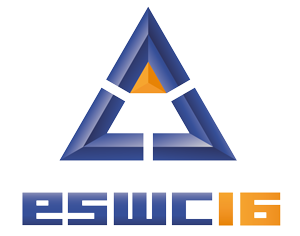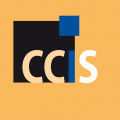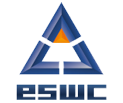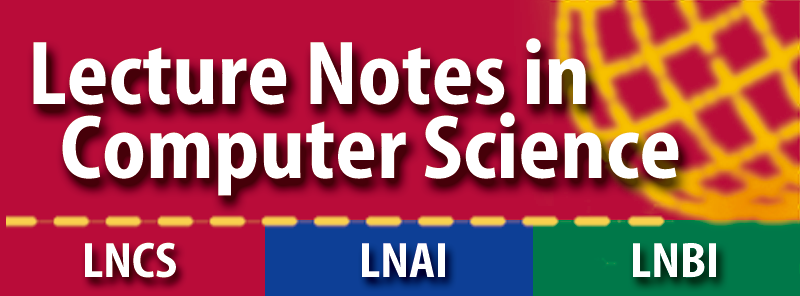ESWC Challenges
This year we are delighted to host a large variety of challenges in the areas of Knowledge Extraction, Question Answering, Sentiment Analysis, Graph Analysis, Topic Analysis and Linking.
There should be something for everyone!
The purpose of the challenges is to showcase the maturity of state of the art methods and tools on tasks common to the Semantic Web community and adjacent disciplines, in a controlled setting involving rigorous evaluation.
Semantic Web Challenges are an official track of the conference, ensuring significant visibility for the challenges as well as participants. Challenge participants are asked to present their submissions as well as provide a paper describing their work. The details of the submissions may vary per challenge and will be found in the individual calls. These papers must undergo a peer-review by experts relevant to the challenge task, and will be published in the official ESWC2016 Satellite Events proceedings.
Communications in Computer and Information Science
Important Dates
Individual challenges may deviate from these dates but as a rule the following dates apply:
- Training data ready and challenges Calls for Papers sent: Friday January 15th, 2016
- Challenge papers submission deadline: Monday March 21st, 2016
- Challenge paper reviews due: Tuesday April 5th, 2016
- Notifications sent to participants: Friday April 8th, 2016
- Camera ready papers due: Sunday April 24th, 2016
Challenges
Open Knowledge Extraction (OKE) Challenge
The OKE challenge, launched as first edition at last year Extended Semantic Web Conference, ESWC2015, has the ambition to provide a reference framework for researc on Knowledge Extraction from text for the Semantic Web by re-defining a number of tasks (typically from information and knowledge extraction), taking into account specific SW requirements. »
Challenge on Semantic Sentiment Analysis
Social media evolution has given users one important opportunity for expressing their thoughts and opinions online. The information thus produced is related to many different areas such as commerce, tourism, education, health and causes the size of the Social Web to expand exponentially. »
Conference Live app Challenge
In the past two years the Extended SemanticWeb Conference (ESWC) has provided a semantic Web application to browse conference data. The application, called Conference Live, is a Web and mobile application based on conference data from the Semantic Web Dog Food server, which provides facilities to browse papers and authors at a specific conference. »
6th Open Challenge on Question Answering over Linked Data (QALD-6)
The past years have seen a growing amount of research on question answering over Semantic Web data, shaping an interaction paradigm that allows end users to profit from the expressive power of Semantic Web standards while at the same time hiding their complexity behind an intuitive and easy-to-use interface. The Question Answering over Linked Data challenge provides an up-to-date benchmark for assessing and comparing systems that mediate between a user, expressing his or her information need in natural language, and RDF data. »
Top-K Shortest Path in Large Typed RDF Graphs Challenge
The advent of SPARQL 1.1 introduced property paths as a new graph matching paradigm that allows the employment of Kleene star * (and it's variant +) unary operators to build SPARQL queries that are agnostic of the underlying RDF graph structure. The ability to express path patterns that are agnostic of the underlying graph structure is certainly a step forward. »
Semantic Publishing Challenge 2016 – Assessing the Quality of Scientific Output in its Ecosystem
This is the next iteration of the successful Semantic Publishing Challenge of ESWC 2014 and 2015. We continue pursuing the objective of assessing the quality of scientific output, evolving thedataset bootstrapped in 2014 and 2015 to take into account the wider ecosystem of publications. »
schema.org - Bonus Challenge
Rather than create a separate schema.org challenge, we encourage where appropriate submissions to other ESWC2016 challenges to consider also exploring schema.org's relationship with Linked Data and Semantic Web tools, technologies, vocabularies and datasets. »
Wikidata - Bonus Challenge
Wikidata is the largest free and open general purpose knowledge base in the world, collecting a wide variety of common and specialized knowledge in a machine-readable form. Wikimedia projects like Wikipedia make use of the data to enrich their articles. Anyone else is equally welcome to use the data in Wikidata to enrich their applications or do research, for example.
Over the past 3 years, Wikidata has grown rapidly and build a great community around structured knowledge.
The purpose of this additional challenge is to explore ways of closing key gaps in Wikidata or between Wikidata and the Linked Data and Semantic Web community.
First we offer a brief background on Wikidata and its current key gaps, then we outline how this relates to this year's set challenges. »
For any questions, please do not hesitate to get in touch with the ESWC2016 challenge chairs
Stefan Dietze, L3S Research Center, Germany (dietze@l3s.de)
Anna Tordai, Elsevier, Netherlands (a.tordai@elsevier.com)






fdc0.png?itok=frdrz8IM)




